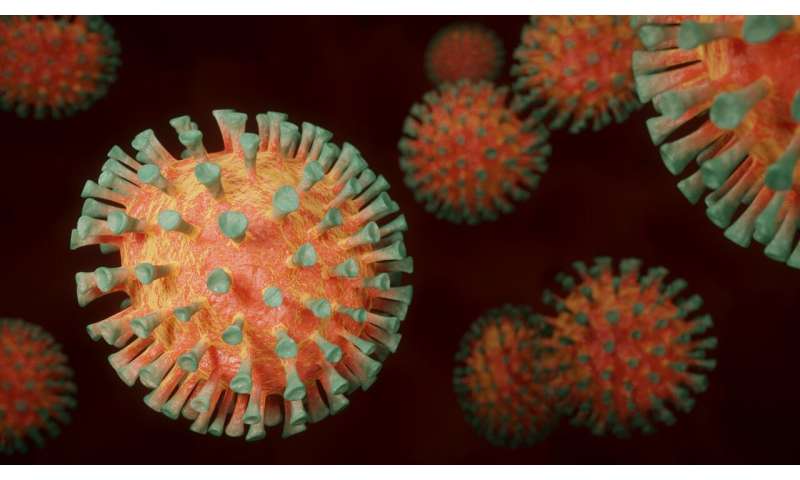NSAIDs not associated with more severe coronavirus disease, study finds

The use of non-steroidal anti-inflammatory drugs (NSAIDs), such as ibuprofen and diclofenac, is not associated with any adverse effects in people who have tested positive for COVID-19, according to a new study published September 8 in PLOS Medicine by Anton Pottegård of the University of Southern Denmark and colleagues from Aarhus University Hospital and the Danish Medicines Agency.
During the early phases of the COVID-19 pandemic, concerns were raised that the use of the painkiller ibuprofen may lead to a more severe course of coronavirus disease. As use of ibuprofen and other NSAIDs is widespread, data on their safety is urgently needed to guide clinicians and patients. In the new study, researchers obtained data on all 9,326 Danish residents who tested positive for the SARS-CoV-2 virus between February 27, 2020 and April 29, 2020. Data were available on NSAID use, 30-day mortality, hospitalization, ICU admission, mechanical ventilation, and acute renal replacement therapy. 248 people (2.7%) had filled a prescription for NSAIDs within 30 days of their positive virus test.
The researchers found no association between any of the outcomes and NSAID use. Among NSAID users in a matched cohort who tested positive for the coronavirus, 6.3% (95% Confidence Interval [CI] 3.1-9.4) died, 24.5% (95% CI 18.6-30.4) were hospitalized and 4.9% (95% CI 2.1-7.8) were admitted to ICU. Of those who tested positive for the coronavirus but were not treated with NSAIDs, 6.1% (95% CI 4.4-7.8) died, 21.2% (95% CI 18.1-24.3) were hospitalized, and 4.7% (95% CI 3.2-6.2) were admitted to ICU. None of these differences between groups were statistically significant (mortality Risk Ratio [RR] 1.02, 95%CI 0.57-1.82, p=0.95; hospitalization RR 1.16, 95%CI 0.87-1.53, p=0.31; ICU admission RR 1.04, 95%CI 0.54-2.02, p = 0.90).
Source: Read Full Article


